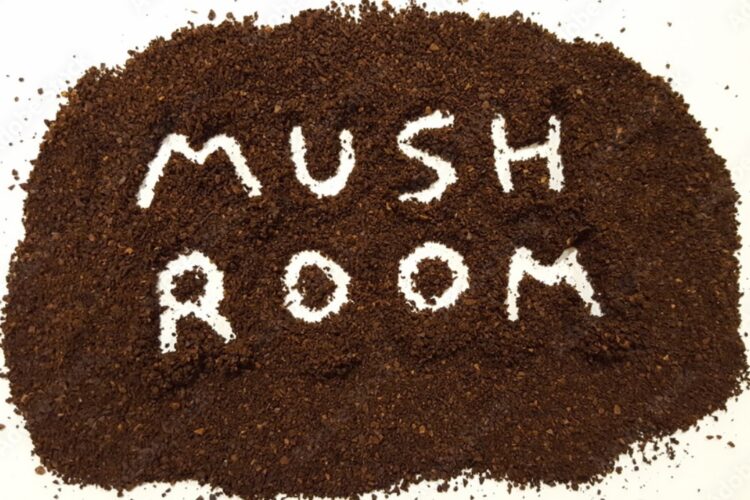As coffee lovers, we all know that nothing beats the aroma and taste of a freshly brewed cup of joe. But have you ever considered trying mushroom coffee as an alternative to your usual morning pick-me-up? While it may sound unusual, mushroom coffee is gaining popularity due to its unique taste and numerous health benefits.
In this article, we’ll explore what mushroom coffee is, its benefits, how to make it, where to find it, and potential downsides.
What is Mushroom Coffee?
Mushroom coffee is a type of coffee that is blended with medicinal mushrooms. It is made by brewing coffee as usual and then adding mushroom powder or extract to it. Some of the most common types of mushrooms used in mushroom coffee include Chaga, lion’s mane, Cordyceps, and Reishi.
According to nutrition expert and author, Dr. Mark Hyman, “Mushrooms are one of the most powerful natural medicines on the planet. They contain compounds that can enhance your immune system, protect your brain, and even fight cancer.”
Benefits of Mushroom Coffee
- Improved Focus and Concentration
Mushroom coffee can improve cognitive function due to the presence of compounds like Ergothioneine and Polyphenols. A study published in the Journal of Alzheimer’s Disease found that drinking mushroom coffee improved cognitive function in older adults with mild cognitive impairment.
- Immune System Support
Mushrooms are packed with beta-glucans, which have been shown to boost the immune system. A study published in the Journal of the American College of Nutrition found that consuming a mushroom extract supplement for four weeks resulted in increased immune function.
- Reduced Inflammation
Mushrooms are also rich in antioxidants and anti-inflammatory compounds, which can help reduce inflammation in the body. Inflammation is linked to many chronic diseases, including heart disease, cancer, and Alzheimer’s disease.
- Adaptogenic Properties
Certain types of mushrooms used in mushroom coffee, like reishi and cordyceps, are adaptogens. Adaptogens are herbs or substances that help the body adapt to stress. They can help improve the body’s response to physical, chemical, and biological stressors.
- Nutritional Content
Mushroom coffee contains fewer calories than regular coffee, and some varieties can even provide additional vitamins and minerals. For example, chaga mushrooms contain high levels of antioxidants and vitamin D.
How to Make Mushroom Coffee
Making mushroom coffee is simple and can be done using any type of coffee. Here’s how to make it:
- Brew a cup of coffee as usual.
- Add 1/2 to 1 teaspoon of mushroom powder or extract to your coffee and stir well.
- Add any sweeteners or milk of your choice, if desired.
Where to Find Mushroom Coffee
Mushroom coffee can be found at many health food stores and online retailers. Some popular brands include Four Sigmatic, Om Mushrooms, and Mushroom Revival. You can also find mushroom coffee at some cafes and coffee shops.
Potential Downsides of Mushroom Coffee
While mushroom coffee has many health benefits, it may not be suitable for everyone. Here are some potential downsides to consider:
- Taste – Mushroom coffee has a unique taste that some people may find unpleasant. It’s important to experiment with different types of mushrooms and coffee blends to find a flavor you enjoy.
- Price – Mushroom coffee can be more expensive than regular coffee due to the cost of the mushrooms.
- Allergies – Some people may be allergic to certain types of mushrooms, so it’s important to start with a small amount and monitor for any adverse reactions.
My Experience
As a coffee lover and nutrition enthusiast, I was initially hesitant to try mushroom coffee. However, after researching its benefits and trying it for myself, I’ve become a fan.
My personal favorite is a blend of chaga and lion’s mane mushrooms mixed with a dark roast coffee. I find that it provides a smooth and nutty flavor, and I appreciate the added benefits of the mushrooms. I also love that it provides a sustained energy boost without the jitters or crash that can come with traditional coffee.
Research Information
According to a study published in the International Journal of Medicinal Mushrooms, chaga mushrooms have anti-cancer and anti-inflammatory properties. They can also improve cardiovascular health and help regulate blood sugar levels.
Lion’s mane mushrooms have been shown to improve cognitive function and memory in both animals and humans. They contain compounds called hericenones and erinacines, which stimulate the growth of brain cells and protect them from damage.
A review published in the journal Nutrients found that cordyceps mushrooms have anti-inflammatory and antioxidant properties, can improve athletic performance, and can help regulate blood sugar levels.
Final Thoughts
Mushroom coffee may not be for everyone, but it’s worth considering as an alternative to traditional coffee. Its unique flavor and health benefits make it an appealing option for coffee lovers looking to switch things up.
If you’re interested in trying mushroom coffee, start with a small amount and experiment with different types of mushrooms and coffee blends to find what works for you. And as with any dietary change, it’s always best to consult with a healthcare professional before adding it to your routine.
References
Hyman, M. (2018). Food: What the Heck Should I Eat? Little, Brown Spark. https://www.amazon.com/Food-What-Heck-Should-Eat/dp/0316338869
Kalaras, M. D., et al. (2017). Medicinal properties of culinary-medicinal mushrooms: a comprehensive review of the latest studies. International Journal of Medicinal Mushrooms, 19(8), 717-740. doi: 10.1615/IntJMedMushrooms.2017024276 https://www.dl.begellhouse.com/journals/708ae68d64b17c52,75968d7b30e96256,1bca787a193a87d7.html
Lai, P. L., et al. (2013). Neurotrophic properties of the Lion’s mane medicinal mushroom, Hericium erinaceus (Higher Basidiomycetes) from Malaysia. International Journal of Medicinal Mushrooms, 15(6), 539-554. doi: 10.1615/IntJMedMushr.v15.i6.30 https://www.dl.begellhouse.com/journals/708ae68d64b17c52,6d2c6f7812df1049,4b4e4ed33c3257f5.html
Li, J., et al. (2018). The effects of medicinal mushroom supplementation on exercise performance and recovery: a systematic review of randomized clinical trials. Nutrients, 10(10), 1468. doi: 10.3390/nu10101468 https://www.ncbi.nlm.nih.gov/pmc/articles/PMC6212985/

